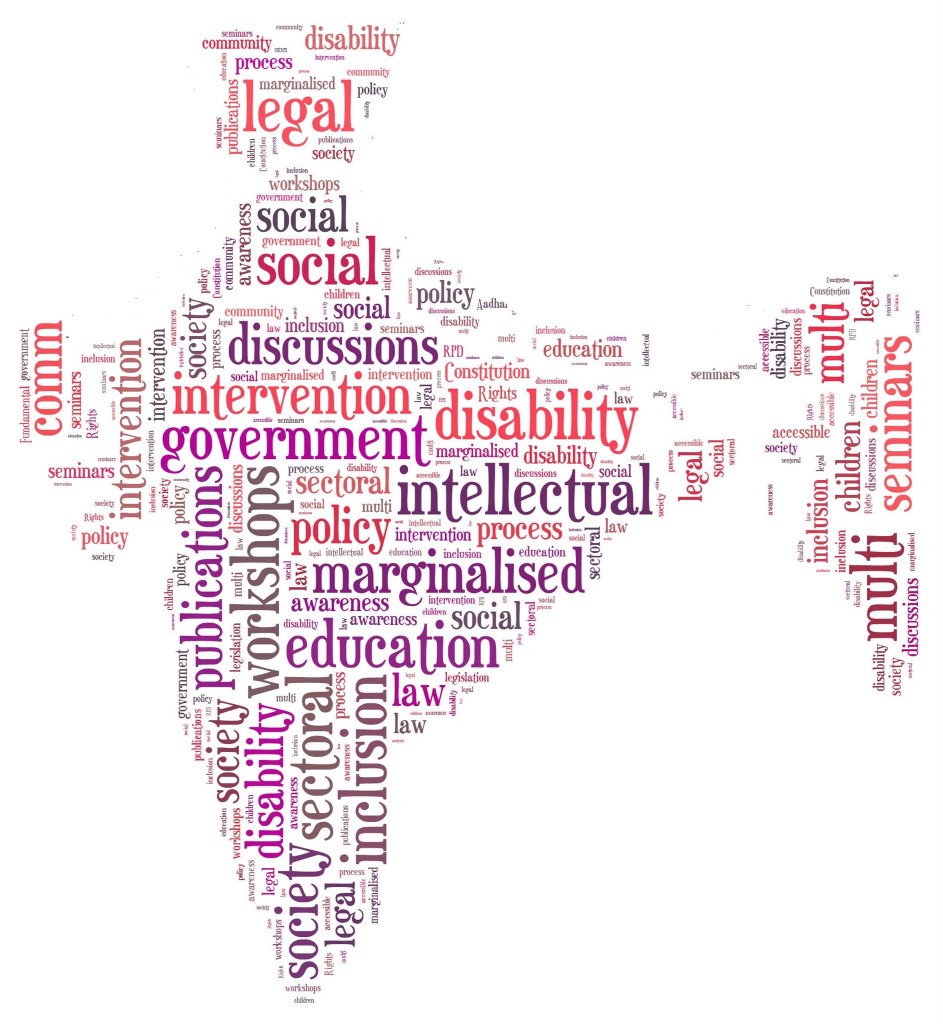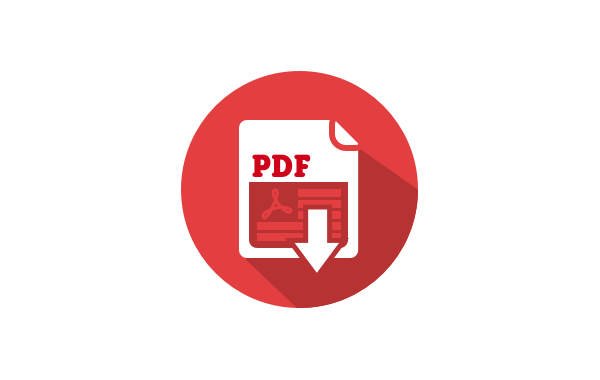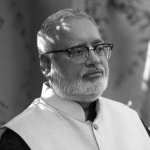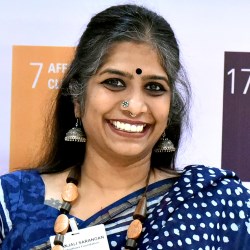Centre for Inclusive Policy

The Centre for Inclusive Policy (CIP) aims to sow the seeds for change through the creation of policies in these areas which are niche, new and complex.
It aims to:
Projects and Initiatives
The Aadhaar card is becoming an increasingly important identification card. However, as we learnt while trying to apply for disability certificates for students we found that it is not just a form of identification but a necessity for many other processes and government documents that are required today. With this in mind, CIP undertook the task of making sure all of the Snehadhara students had their Aadhaar cards. On finding that some parents found it difficult to get Aadhaar cards for their children, we set out to find out more about the process and how we could make it easier for people with intellectual and mental disabilities to obtain an Aadhaar card. The process is further detailed on this page.
Phases Completed
Acquired 13 Aadhar cards through Bangalore One as a pilot project. Met with Assistant Section Officer at UIDAI R.O., Bangalore. Met with officer at PWD.
What we found
Only Bangalore One centres, banks and post offices now are certified centres for Aadhaar enrolment. For enrolment for people with Intellectual and Mental Disabilities who cannot enrol at one of these centres, request to do a 'Home Enrolment' is possible (advisable)
Our next step
How the Aadhaar card can reflect the disability a person has and how that can help with the identification process.
Downloads
Contacts for home enrollment
Assistant Director General
UIDAI Regional Office Khanija Bhavan,
No. 49, 3rd Floor, South Wing Race Course Road,
Bengaluru - 560001
UIDAI R.O. Bengaluru
080 22340104
All the facilities and schemes that the government offers, for people who are disabled, are of no use if one does not have a UDID. A person must be assessed and a UDID number allocated to them to avail the applicable government schemes and facilities
Online Enrollment
- Enrolment /Application Registration number will be generated for all successful applications and SMS confirmation will be sent to the applicant with the enrolment/application registration number.
- Applicants who do not have Disability Certificate will receive SMS with date and time to visit the nearest Chief Medical Officer's (CMO) office for assessment.
- The UDID Card will be generated online after the assessment and verification is complete.
- SMS confirmation will be sent to the applicant with the allocation of UDID number.
- The status of the application can be checked online using the enrolment/application registration number.
- Printed UDID Card will be sent to the Person with Disability (PwD) at their Postal Address as and when it is printed and ready (Process of printing the card is yet to start; will be intimated on the website).
What we found
It can take the whole day and sometimes more than one day to complete the assessment process so make sure you are prepared.
We recommend that parents/legal guardian of the person with a disability having a mental/intellectual disability does the enrolment. The process requires a lot of information regarding the history and medical background of the person/children.
Applying for Disability Certificate at NIMHANS
- The first step is to register at NIMHANS. This happens at the block opposite to NIMHANS OPD. The registration charge is Rs. 20. Post registration they will schedule an appointment for Evaluation. If the children are already registered with NIMHANS then registration can be skipped. There is an online registration portal in NIMHANS for OPD, so that can also be availed.
- Post registration the children and adolescents have to undergo evaluation and after the evaluation is complete they will go ahead with the relevant Assessments.
- Assessment is based on evaluation and diagnosis of the child. During the assessment process, the history of the child/person with the disability is discussed. It includes medical history, family history and prenatal history. Psychologist and Psychiatrist are involved in the process of preliminary assessment. After this, the assessment tests are recommended depending upon a case to case.
- If one does not have a medical file at NIMHANS then one has to visit block F15 in NIMHANS to open a file. There you will have to fill a form with basic details of the child/person with the disability.
- Post-assessment, the assessment report is submitted to the medical board for approval and once approved the disability certificate is issued within three weeks.
- As per rule 18 of the Rights of Persons with Disability Rules, 2017, the medical authority has to issue the certificate of disability within a month from the date of receipt of the application.
- The application, as per rule 17 clause 2 of Rights of Persons with Disability Rules, 2017, has to be supported with proof of residence, 2 recent passport size colour photograph and Aadhaar number or Aadhaar enrolment number.
- The medical authority shall issue a permanent disability certificate in cases where there are no chances of variation of disability over time in the degree of the disability or issue a temporary certificate indicating the period of validity in cases where there is any chance of variation over time in the degree of the disability. The validity of temporary certificates has been fixed for a period of five years post which reassessment is required.
- This has been issued by the Ministry of Social Justice and Empowerment, Government of India, in Guidelines for Evaluation of Various Disabilities and Procedure for Certification issued in 2001.
- Assessment of autism and certification is done as central government notified tool of ISAA (Indian Scale for Assessment of Autism). The disability certificate is issued in the same format but a letter is attached to it certifying Autism.
- Collection of certificate: Post assessment, the parents may come and collect the certificate from NIMHANS. It is not necessary for the parents to be accompanied by the child while collecting the certificate.
Ongoing processes
- Identifying a group of representative schools to work with.
- Helping schools assess their readiness for inclusive education.
- We will work with a handful of anchor schools to initiate discussions and implement processes to understand what inclusion will mean to mainstream schools in India, in the future.
- We will organise a conference to create a platform where various stakeholders can present their experiences on inclusive education and thoughts on how we should further the idea of inclusion.
- Taking inclusion to other service sectors.
We, at Snehadhara Foundation had taken a bold step in forming the Centre for Inclusive Policy (CIP) a year ago. It was a greenfield effort with no precedents. We had to envision, discover and pick where we would be able to add value.
We adopted an approach of doing and learning simultaneously in areas that we thought are our strengths. This made us pick up the projects for obtaining the statutory ID registrations that would help CwD. This resulted in 2 projects:
a. Aadhaar card registration
b. Usability Certificate issuance.
We believe our experience, documented in a form that allows others to navigate this process easily, is invaluable to the ecosystem.
While looking at areas of engagement, democratisation of the intersection of inclusion and education is critical to create an inclusive environment in the future. Snehadhara also has been doing inclusion workshops in this space. To scale, we need to build awareness and a body of knowledge about the state-of-inclusion. This led to our launching the Inclusion Audit in schools. We did a pilot in an exploratory form to enable us sharpen the audit and create a larger base of schools to dialogue with.
CIP is intended to be Snehadhara's contribution to the ecosystem, sharing knowledge and creating project prototypes for any one to pick up for execution. We will endeavour to keep adding to this repository with regularity and look forward to feedback on what could be attempted in the space dealing with CwD and education.
Downloads
CIP Process Documentation
Disability Certificate
CIP Process Document
Final Aadhaar
The CIP Team
Mohan Sundaram
Gitanjali Sarangan
Advisor, CIP



